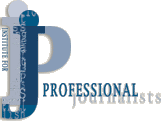Fourth Forum of the Arab Women’s Summit — “Arab Women & The Media”, February 1-3, 2002 - Abu Dhabi
Globalization of the Media: A Bicultural Woman’s View
— by Magda Abu-Fadil
3. How Arab media should counterattack:
On November 26, the Arab League opened a two-day conference to discuss how to deal with the world's eagerness to equate Islam with terrorism and started a fund with an initial $1 million donation to finance research and publications to promote dialogue among civilizations. That’s great, but we need to ensure the availability of satellite broadcasts (mostly in English), good use of the Internet, and an army of articulate communicators who can convey the ideas of peace, common humanity and fairness to all in non-rhetorical language, short sound bites and cyber kilobits.
Arab media need to counterattack, but I would argue that to do so, they must act decisively, promptly and credibly.
The Detroit Free Press, published in the city with the United States’ most concentrated Arab-American population, is trying to better understand and explain issues concerning Arab-Americans and Muslims.
It has a list called “100 Questions & Answers About Arab-Americans: A Journalist’s Guide” to help with more accurate journalistic portrayals of Arab-Americans, their backgrounds, culture, religions.
The Florida-based Poynter Institute, which specializes in media matters, ran an online article called “Understanding Ramadan” with links to various sites journalists could use as resources.
Equally good were two features in the Seattle Times Online called “Understanding Turbans” and “Interpreting Veils” with illustrations and descriptions of headdresses worn by men and covers for women. We should have such information handy to provide our media contacts.
Speaking on Arab-American perspectives on the anti-terrorism war, the president of the Arab-American Institute in Washington, James Zogby, delivered the Secretary of State’s Open Forum address in December, noting that his community can play a bridging role in the Middle East.
“We understand the reality of the region,” he said. “We also want to have input in the discussions about how we approach the Middle East.”
So what do readers in America, for example, really want? Pam Johnson writes on the Poynter Institute site that international news needs relevance.
“For many Americans, what happens in the Middle East, Western Europe, Great Britain, Afghanistan, the Indian sub-continent, and the rest of North America now is a subject of great interest,” she said. “Similarly, events in the United States that are related to the U.S.-led 'War on Terrorism' take on greater importance.”
The Columbia Journalism Review of November/December 1997 ran a story entitled “Reporting Foreign News: Who Gives a Damn?”
Author James F. Hoge, Jr. wrote that except for the collapse of the Soviet Union in 1989-90, the coverage of international news in American media had steadily declined since the late 70s, when the cold war lost its sense of imminent danger. The reason: A world less threatening to America is less newsy, he reported. Or as one TV executive said, “sunshine is a weather report, a raging storm is news.”
Journalists have also ignored historians, wrote Charles Bowen in Editor & Publisher. He pointed to a new history-rich website called History News Network (www.historynewsnetwork.org) as a potentially powerful resource, providing linked headlines to its latest analyses.
Shouldn't the Arab World have something similar to serve its purposes?
George Krimsky, a veteran foreign correspondent and editor with the Associated Press, who now has a consulting firm, co-authored a very useful book called “Bringing the World Home: Showing Readers Their Global Connections.” It's an invaluable resource for Americans who don’t see a link between their own back yards and the universe at large.
Arabs can help by finding links between what interests Americans and their own region. It just requires homework, research, and perseverance.
Several organizations award journalists for the work they do and risks they take to inform us about what's happening in the world, or even in our own neighborhoods. We should support these awards and create worthy prizes.
I was heartened to learn that the conference of Arab news agencies’ federation which met in Doha in December recommended the establishment of the federation’s own Internet site in English and Arabic and another site to counter the negative image portrayed in the perceived campaign against Arabs and Muslims.
I would still like to see more references made to women's participation in that effort and mention of how the image of women in the Arab world can be presented in a positive light, not via stereotypes.
“Empowering Arab & Muslim women is the key to eradicating terrorism at its source” was the headline of an article by Lebanese journalist Saad Mehio in The Daily Star Dec. 12, 2001.
- Introduction
- Need for understanding and balanced information on both sides
- The gender problem
- How Arab media should counterattack
- Recommendations

